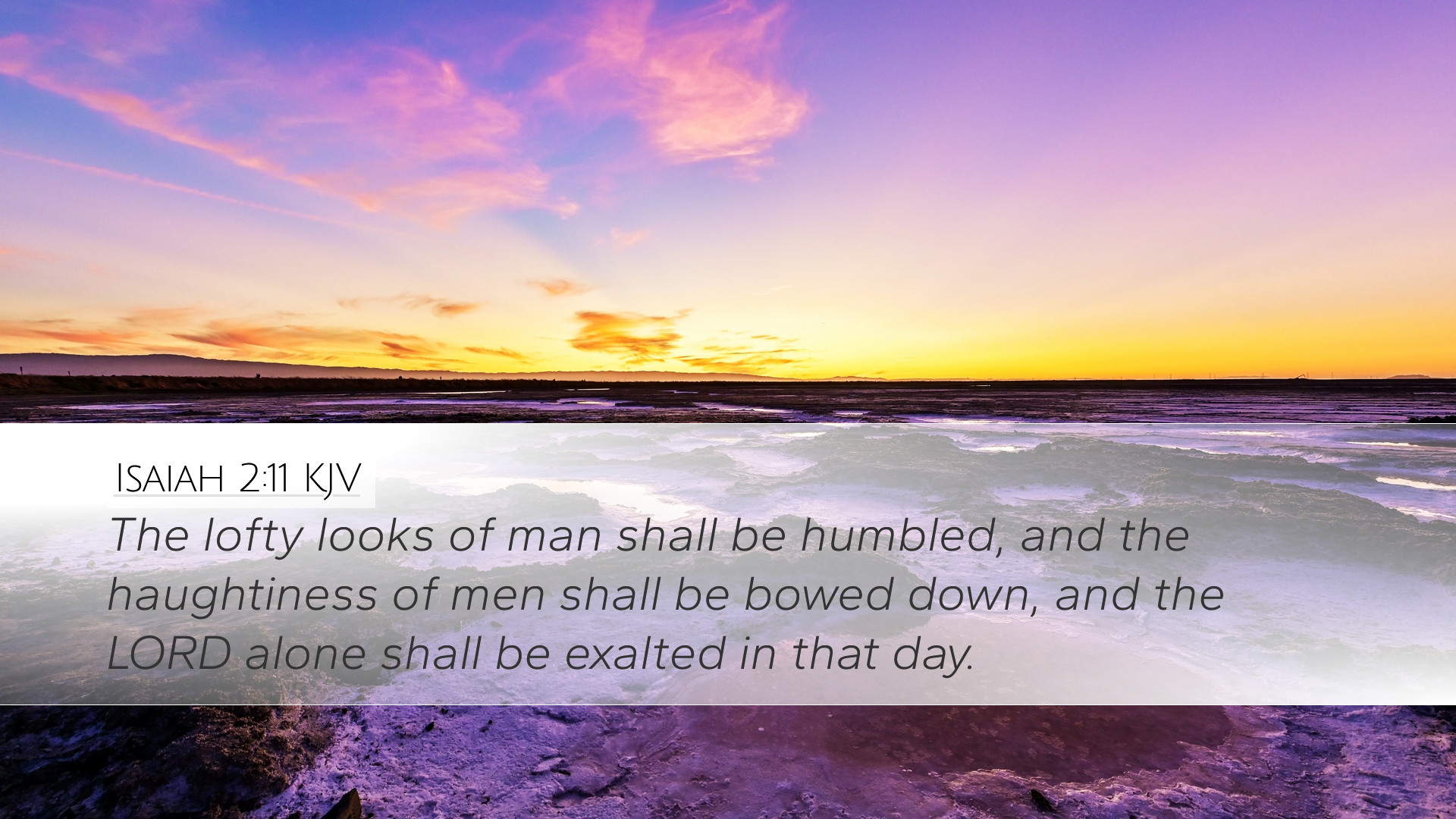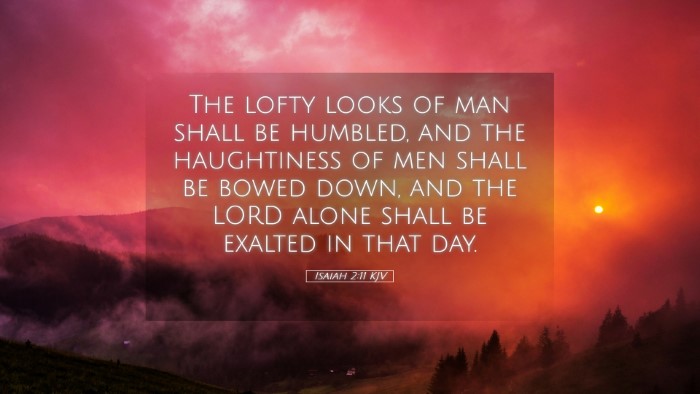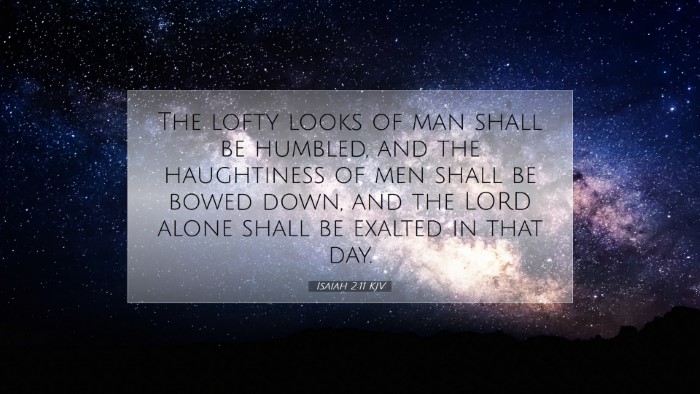Commentary on Isaiah 2:11
Isaiah 2:11 states: "The lofty looks of man shall be humbled, and the haughtiness of men shall be bowed down, and the Lord alone shall be exalted in that day." This verse serves as a profound reminder of the sovereignty of God and the futility of human pride. The context of this passage is crucial, as it reflects the prophet Isaiah’s vision of the last days, where the stark contrasts between divine authority and human arrogance become evident.
Contextual Insights
Isaiah's prophecy occurs at a time when Israel was experiencing turmoil and moral decay. The people had turned away from God, indulging in idolatry and wickedness. Isaiah speaks to the imminent judgment and ultimate restoration that God will bring. In the subsequent verses, the theme of divine exaltation cuts through the darkness of human pride and rebellion.
The Humbling of Human Pride
The assertion that “the lofty looks of man shall be humbled” (Isaiah 2:11) echoes themes found throughout Scripture regarding the danger of pride. Matthew Henry emphasizes that God has a way of bringing low those who exalt themselves. He asserts that pride leads to a downfall, stating:
"When men become proud, they are ripe for ruin; and therefore the consideration of the grandeur of God should inspire humility in mankind."
Manifestation of Humility
Albert Barnes notes that the haughty look is indicative of a heart that does not recognize its dependence on God. This divine judgment is necessary for the recognition of God's omnipotence:
- Subversion of Human Authority: Human governments and leaders often operate under the delusion of self-sufficiency. Isaiah's prophecy serves as a reminder that God will ultimately dismantle such illusions.
- Contrasts with Divine Majesty: When the verse states, “the Lord alone shall be exalted,” it highlights that the exaltation of God is the only eternal truth in contrast to human failings.
The Significance of “That Day”
The phrase “in that day” refers to a prophetic realization of God's judgment and the establishment of His kingdom. Adam Clarke provides insight into the significance of this phrase which implies a definite period when God will manifest His glory:
"This is a time of great distress among the nations, where human strength will fail, and only the divine intervention will bring about true peace and exaltation."
Historical and Eschatological Perspectives
This prophecy serves both an immediate context during Isaiah's time and a future eschatological fulfillment. The Jewish people longed for the day when their national pride would be vindicated. However, it extends to all humanity, where universal acknowledgment of God's supremacy will take place:
- Historical Fulfillment: Some theologians view aspects of this prophecy as fulfilled during the Babylonian Captivity when nations were humbled and the sovereignty of the Lord was demonstrated.
- Eschatological Fulfillment: Others argue this points to the second coming of Christ wherein every knee shall bow and every tongue confess that Jesus is Lord (Philippians 2:10-11).
Theological Implications
This verse carries significant theological implications for understanding the character of God and the human condition. The inherent pride of man is countered by the majesty and justice of God:
- God’s Sovereignty: The core of this verse is the affirmation of God's ultimate authority over all creation. It challenges human presumption in relation to divine providence.
- Call to Humility: Believers are called to a posture of humility, recognizing their limitations and the grace that sustains them. It serves as a humbling reminder amidst societal pressures to elevate self.
Practical Application
For pastors, students, and theologians, Isaiah 2:11 serves as a poignant reminder of several key aspects of ministry and scholarship:
- Encouragement toward Humility: In the face of achievement and knowledge, a constant reminder of humility is essential. This helps maintain a posture of reliance on God.
- Focus on God’s Glory: Ministries should center on God’s exaltation rather than personal or institutional glory. This seeks to honor God in every endeavor.
- Understanding God’s Plan: Recognizing our place in God’s redemptive plan should drive scholars to seek His wisdom and understanding, contrasting our limitations with His infinite knowledge.
Conclusion
Isaiah 2:11 is a profound declaration of God’s supremacy over human pride and folly. As the lofty looks of man are humbled, we are reminded that true greatness is found in submission to God’s will. Through the insights of public domain commentaries like those of Matthew Henry, Albert Barnes, and Adam Clarke, this text not only becomes a source of theological reflection but also a guide for lived faith that seeks to elevate God above all.


